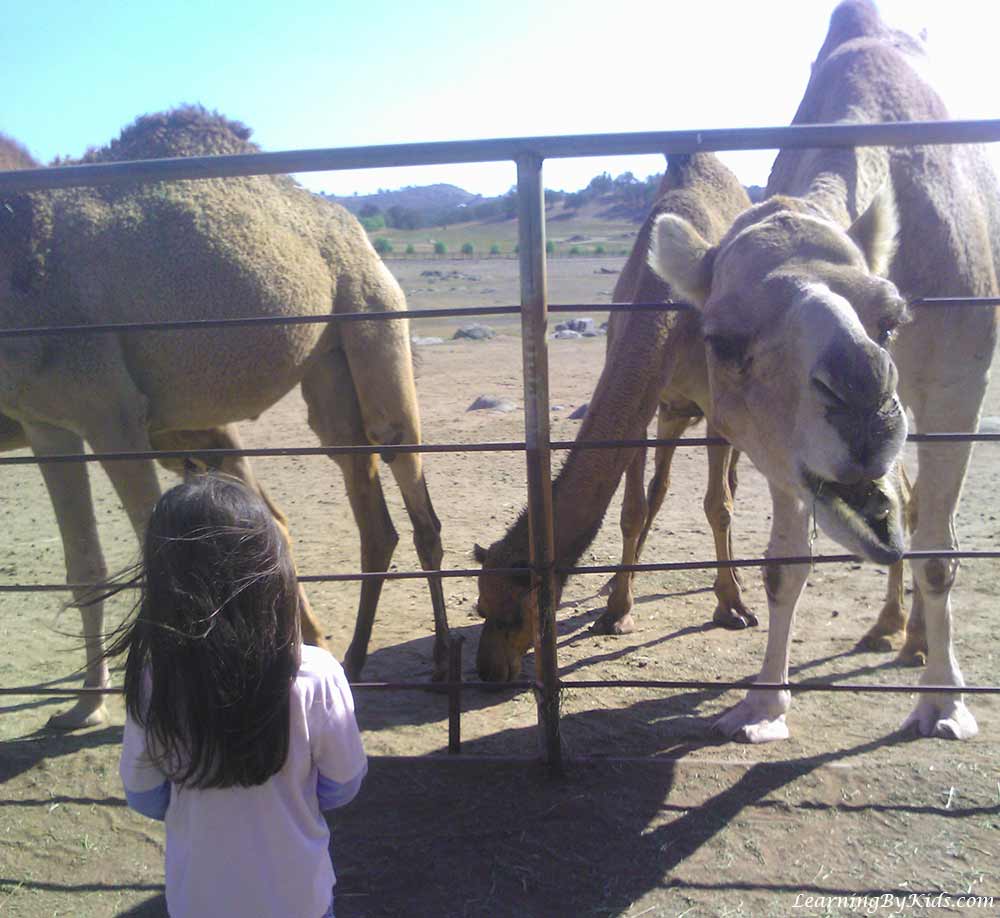Almost every children’s story about the African, Arabian, or even Asian desert features the camel. Camels are fascinating because of their ability to withstand their extreme environment. It is no wonder then that in certain cultures the camel symbolizes endurance and patience.
Camels are herbivores. They store fat in their humps, which can be turned into food energy and water during times of need. The Arabian camel is called a dromedary and has one hump. The Asian camel, or Bactrian, has two humps.
Camels have three eyelids and a double row of lashes to shield their eyes from the sand. Their nostrils can close, especially during a sandstorm, to also keep the sand out. Plus, their skin can reflect sunlight, which protects the camel from the sun as well as the heat radiated from the desert sand.
 Camels can survive long periods of time without water. And, in desert climates, these steadfast animals have been relied upon to carry as much as 500 pounds of weight. Meanwhile, a camel has a particular gait that can make new riders feel ‘seasick.’ For these reasons, camels have been nicknamed ‘ships of the desert.’
Camels can survive long periods of time without water. And, in desert climates, these steadfast animals have been relied upon to carry as much as 500 pounds of weight. Meanwhile, a camel has a particular gait that can make new riders feel ‘seasick.’ For these reasons, camels have been nicknamed ‘ships of the desert.’
Camels can be stubborn. They have been known to spit at or even kick those they find disagreeable. However, if a camel is well-cared for, it can be very docile. Indeed, these mammals are highly valued by desert communities in Africa, Arabia, and Asia. There was even a time in the past when a person’s wealth was measured by how many camels he had in his herd.




